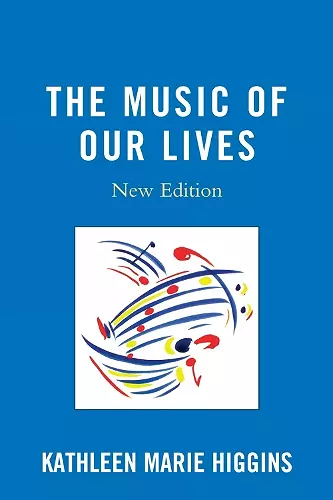The Music of Our Lives
Format:Paperback
Publisher:Lexington Books
Published:24th Feb '11
Currently unavailable, and unfortunately no date known when it will be back

Although many of the world's musical traditions recognize the positive value of music for ethical life, the Western philosophical tradition has largely forgotten this idea. The dominance of formalism in musical aesthetics has encouraged this abandonment of the idea that music has an ethical dimension. Greater attention to musical experience and to the way that context affects the meaning that music has to performers and listeners helps to bring music's ethical potential into focus. In The Music of Our Lives, Kathleen Higgins argues that the arguments that Plato used to defend the ethical value of music are still applicable today. Music encourages ethically valuable attitudes and behavior, provides practice in skills that are valuable in ethical life, and symbolizes ethical ideals and the possibility of interpersonal harmony. In these ways it develops our ability to live well and to think clearly about our ethical situation. Music provides a model for the good human life.
When it was originally published in 1991, The Music of Our Lives was literally ahead of its time. Now it returns in a revised edition and Kathleen Higgins's splendid examination of the ethical dimensions of music is available again. -- Theodore Gracyk, author of Rhythm and Noise: An Aesthetics of Rock and Listening to Popular Music
Nietzsche quipped that 'without music, life would be an error,' and lamented that philosophers have long tended to be tone-deaf with respect to 'the music of life.' Higgins agrees. Her conviction of the importance of taking music seriously as well as lovingly is palpable, and she makes an engaging case for the difference this can make both in our lives and in our thought. -- Richard Schacht, University of Illinois
In The Music of Our Lives, Kathleen Higgins explores the connection between music and ethics. She challenges the obsession with musical scores and aesthetic formalism that has dominated much philosophical thought about music. Music's expressiveness heightens our emotional sensitivity and sense of shared delight. More generally, the manner in which music resolves tensions and reconciles diverse voices into a balanced, harmonious whole provides a dynamic model for thinking about and pursuing the good life. These important and provocative ideas are advanced by subtle, elegant arguments appealing to a diverse range of musical examples and a wide philosophical literature. -- Stephen Davies, University of Auckland
ISBN: 9780739120859
Dimensions: 232mm x 156mm x 15mm
Weight: 397g
262 pages